The growing dependence on technology has brought countless benefits to businesses, but it has also opened the door to potential cybersecurity threats and hacker attacks. The rise of cyberattacks has made it imperative for companies, regardless of size, to prioritize cybersecurity measures. In this article, we’ll explore the key aspects to be aware of when it comes to cybersecurity and how you can protect your business from malicious hackers.
Understanding Cybersecurity Threats
Cybersecurity threats can manifest in various forms: malware, phishing attacks, ransomware, and more. It’s crucial to educate your team about these threats, as awareness is the first line of defense. Regular training on identifying suspicious emails, links, and attachments can go a long way in preventing successful attacks.
Strong Password Practices
Encourage employees to use strong, unique passwords and enable two-factor authentication wherever possible. Hackers often exploit weak passwords to gain unauthorized access to accounts and systems. Implement a password policy that enforces complexity and regular updates.
Regular Software Updates and Patching
Outdated software can have vulnerabilities that hackers exploit. Regularly update operating systems, applications, and security software to ensure you have the latest patches that protect against known threats.
Firewalls and Antivirus Solutions
Invest in robust firewalls and antivirus solutions. Firewalls act as a barrier between your internal network and external threats, while antivirus software detects and removes malicious software. Regularly update these tools to stay ahead of emerging threats.
Secure Network and Wi-Fi
Secure your business’s Wi-Fi network with strong encryption and a unique password. Public Wi-Fi networks are particularly risky, so caution your employees against accessing sensitive information on such networks.
Data Encryption
Encrypt sensitive data to make it unreadable in case of unauthorized access. This ensures that even if hackers manage to breach your systems, the information they obtain remains indecipherable.
Regular Backups
Regularly back up critical business data and store it in secure, off-site locations. This practice mitigates the damage caused by ransomware attacks, allowing you to restore your data and operations quickly.
Employee Training and Awareness
Regular training sessions on cybersecurity best practices are essential. Encourage employees to report any suspicious activities promptly. Remember, human error is a common entry point for cyberattacks.
Incident Response Plan
Develop a comprehensive incident response plan that outlines the steps to take in case of a cybersecurity breach. Having a well-defined plan in place minimizes confusion and helps you respond effectively.
Third-Party Vendors
Ensure that your third-party vendors have robust cybersecurity practices in place. Their vulnerabilities can potentially impact your business.
Cybersecurity is a non-negotiable aspect of modern business operations. Staying vigilant, informed, and proactive is essential in safeguarding your company’s sensitive data, financial well-being, and reputation. By implementing a comprehensive cybersecurity strategy and cultivating a culture of cybersecurity awareness, you can significantly reduce the risk of falling victim to cyberattacks and hacker threats. Remember, in the digital realm, preparation is key to protection. RPM Payroll recommends that you contact a professional prior to making changes to your cyber security plan.



